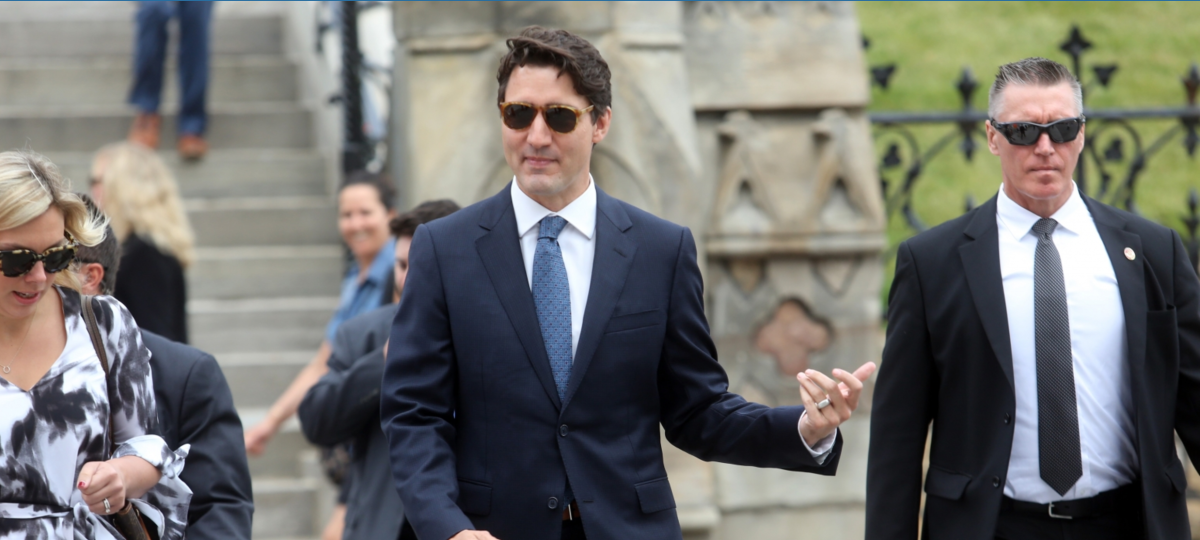Support strong Canadian climate journalism for 2025
Prime Minister Justin Trudeau is giving no indication he will address the growing demand for change to the independent inquiry his government launched to examine the issue of missing and murdered Indigenous women and girls.
The two-year process — designed to examine systemic causes of prevalent violence — has been heavily scrutinized, especially this week, after one of five commissioners decided to call it quits. Some families are now calling for a complete reboot of the process.
But during a news conference Thursday, Trudeau said his government will engage with the existing commission to ensure it is responding to concerns of families.
"I have had the privilege of sitting down with families in various ceremonies across the country over the past years where we've cried and shared stories and looked for hope and healing," he said.
"I think everyone recognizes the tremendously difficult task that any national public inquiry into this was going to face."
Marilyn Poitras, a Metis professor from Saskatchewan, said she felt regret and a "heavy heart" as she made her decision to resign, saying she strongly feels the terms of reference for the inquiry "have not been met."
While the commission says it will move ahead despite Poitras' resignation and the departure of other staff members, a coalition of frustrated families think it's time to start over.
Some of their concerns include a lack of information about how the inquiry's hearings will work and fears they will retraumatize vulnerable survivors and loved ones.
They also wonder why the commission held only a single hearing in Whitehorse in the span of almost a year.
"We are asking you, prime minister, to live by your words to build nation-to-nation relationships," the group said in a letter to Trudeau circulated Thursday. "The time has come to restart this top-down inquiry and rebuild it from the ground up."
Melanie Omeniho, president of Women of the Metis Nation, said Thursday that her organization believes Poitras felt the commission was "overly risk averse" and too concerned with legalities, resulting in a fear of communicating with families and Indigenous leadership.
"Moving forward, we urge the commissioners to engage with families, not on the basis of legal risk but as a family-first, trauma informed process," she said in a statement.
Members of the national advisory circle asked by the commission to provide feedback and advice issued their own statement Thursday urging other families to "lift each other up" during the inquiry.
"The commissioners had to start the national inquiry from nothing and they are learning as they go as we all are," they said.
"The process is not perfect but nothing ever is ... it is imperative that the national inquiry continues with its work plans."
The Liberal government has earmarked $53.8 million for the commission. An interim report is expected in November.
Chief commissioner Marion Buller has said more time and funding will be required but she cannot say when a formal request will be made to Ottawa.
On Tuesday, the four remaining commissioners met with about a dozen family members in at a Toronto hotel, where they received an earful about how the current study is going. Indigenous Affairs Minister Carolyn Bennett also had a separate meeting with families.
Bridget Tolley, who has spent 16 years searching for answers in the death of her mother Gladys, was in the room and said the commission needs to demonstrate it is willing to respect everyone's concerns.
"We are not critics," Tolley said.
"We are just unhappy family members with the way it's going ... I'm hurting, I don't know what else to do, I don't know where to go. What do we do?"




Comments